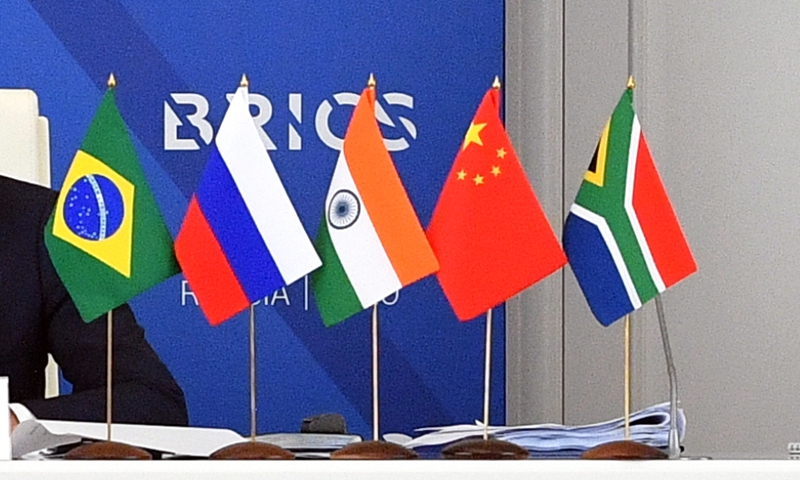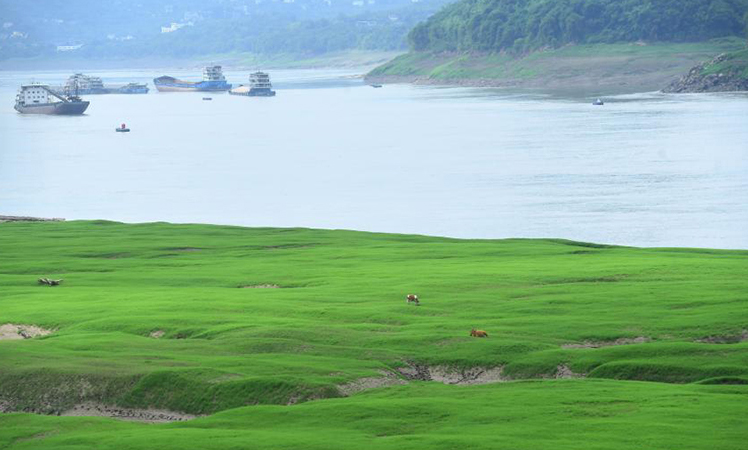BRICS to take leadership role in ending global hunger, poverty: FAO

BRICS Photo: brics-russia2020.ru
BRICS countries Brazil, Russia, India, China, and South Africa, accounting for more than 40 percent of the world's population and 20 percent of global GDP and producing more than one-third of global cereal production, are well-placed to take a leadership role in helping eradicate global hunger and poverty by 2030, and developing countries around the world looked to the successes of BRICS countries in economic development over the past few decades, Carlos Watson, the Representative of the Food and Agriculture Organization of the United Nations (FAO) in China, told the Global Times in an exclusive interview ahead of the virtual 14th BRICS Summit in Beijing on Thursday.
Watson told the Global Times on Monday that in the post-pandemic era, FAO looks forward to strengthening multilateral agricultural cooperation with the BRICS countries, and facilitate the sharing of "BRICS solutions" to global food and agriculture governance.
He said he had the pleasure to attend the 12th Meeting of BRICS Ministers of Agriculture on June 8, which carried out profound exchanges on deepening practical cooperation in agriculture and rural development, highlighting the importance of ensuring global food security and reducing poverty, among others.
Some Western media claimed BRICS has lost appeal or was a failure, but Watson believes developing countries look to the successes of BRICS countries in economic development over the past few decades as an example to follow.
He said BRICS countries host experience and knowledge in accelerating rural development, which is the key to achieving the UN Sustainable Development Goals (SDGs).
According to UN data, the poverty rate in rural areas is 17.2 percent globally, more than three times higher than in urban areas.
Accelerating rural development can best be done through a combination of agricultural growth and targeted social protection, but also through growth in the rural non-farm economy, he said.
Equally important is that the tools, approaches and technologies developed must be useful and accessible to poor farmers in developing countries so that they can increase production and productivity. BRICS countries host such experience and knowledge, which could be useful for other developing countries.
Among the BRICS members, China has been exchanging experiences and sharing lessons on poverty reduction, in partnership with FAO and other UN agencies, as well as other developing countries, through the South-South and Triangular Cooperation and multilateral mechanisms, such as BRICS, Watson said.
"China has shown to the world how to achieve the SDG 1 - No Poverty, and how other developing countries could learn from the 'China Model,'" Watson said.
At the heart of the UN 2030 Agenda for Sustainable Development adopted by all UN members in 2015 are 17 SDGs, with Goal 1 being to end poverty in all its forms everywhere.
"I often heard the saying that 'hold firmly the country's rice bowl in the hands of Chinese people,' and I think this is the exact description of the determination and achievement China has had on food self-reliance, underpinned by strong policy commitment and an enabling environment, enhanced infrastructure, increased investment, technical innovations and agriculture extension, and above all, the hard work of Chinese people," Watson said.
China has made remarkable achievements in achieving and sustaining food security. China uses one-tenth of world's arable land to produce one-fourth of the world's grains and feeds one-fifth of the global population, he said.
The incredible development achievements reached by China in record time, affecting record number of people, has resulted in what Watson called "a great Chinese national treasure of knowledge." He said this treasure is a vault filled with a vast number of proven solutions that China has developed and applied to achieve its own remarkable development results.
Under the COVID-19 epidemic, food security and nutrition of the world's vulnerable populations is being threatened. The global demand for solutions is higher than ever before, he said.
Globally, hunger levels remain alarmingly high. In 2021, they surpassed all previous records as reported by the 2022 Global Report on Food Crises, with close to 193 million people acutely food insecure and in need of urgent assistance across 53 countries/territories. This represents an increase of nearly 40 million people compared to the previous high reached in 2020. The report identified intensified conflict, significant economic shocks and some of the most severe weather extremes in recent years as the main drivers of increased food insecurity.
Given China's experience in poverty alleviation and agricultural development, China is uniquely positioned to engage in development exchanges with other developing countries, especially in the post-pandemic era, he said, noting FAO greatly values China's willingness to work with and through the Organization in a variety of ways.
Since 2009, China has committed $130 million as the Trust Fund to implement the FAO-China South-South-Cooperation Program. To date, the Program's Phase I and II has supported 25 national, regional and global projects with the fielding of 252 Chinese experts and technicians to carry out agricultural technical assistance and extension work in various technical fields and has reached more than 70,000 direct beneficiaries at the grassroots level, as well as several hundred thousand indirect beneficiaries, according to Watson.
Photos
Related Stories
- China sees robust trade growth with BRICS countries
- Interview: BRICS helps meet challenges, boost global development, says Russian scholar
- Interview: BRICS countries contributor of global development -- Cambodian scholar
- China to further deepen, substantiate BRICS cooperation
- BRICS partnership stands strong amid global challenges
Copyright © 2022 People's Daily Online. All Rights Reserved.









